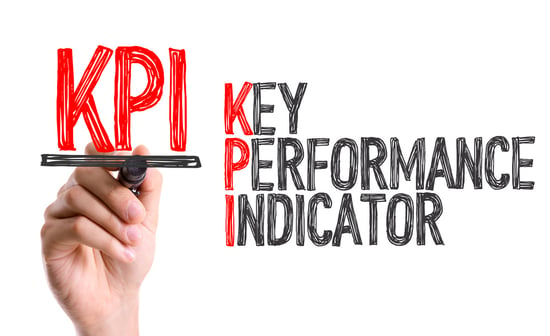Digital Assets & AI Startups: Financial Due Diligence in Emerging Tech

As digital assets and AI continue to redefine the boundaries of innovation, startups operating in these domains are experiencing unprecedented growth and investor interest. From AI-powered automation tools to decentralized finance (DeFi) platforms and tokenized ecosystems, the landscape of emerging technology is broad, dynamic, and complex.
However, this rapid evolution introduces unique financial risks and valuation challenges. Traditional due diligence models often fall short when applied to digital-native companies. As a result, investors, acquirers, and venture capitalists need to apply a refined lens—one that balances traditional financial scrutiny with the distinct variables of emerging tech.
In this article, we’ll explore what financial due diligence means in the context of digital assets and AI startups, highlight key considerations, and provide a structured approach for navigating this high-stakes process.
Understanding Financial Due Diligence in Emerging Tech

Financial due diligence refers to the process of thoroughly examining a company’s financial records, statements, and key performance indicators (KPIs) to assess its health, risks, and future potential. For traditional companies, this often involves revenue analysis, profit margins, debt obligations, cost structures, and cash flow trends.
But for digital asset and AI startups, financial due diligence becomes exponentially more nuanced. Why?
Because these businesses:
- May not follow traditional revenue models.
- Often have assets that are intangible or volatile (e.g., proprietary algorithms, tokens, or NFTs).
- Face regulatory uncertainty.
- Rely heavily on intellectual property and data.
- They are more susceptible to scalability challenges and high burn rates.
This calls for a blend of conventional financial analysis and specialized insight into how digital and AI-driven business models operate.
Key Components of Financial Due Diligence for AI Startups

AI startups are typically software-intensive, with long development cycles before monetization. Here’s what financial due diligence should focus on:
1. Revenue Recognition and Monetization Models
AI startups may offer services via subscriptions, APIs, or licensing agreements. It’s essential to:
- Validate revenue streams against contracts.
- Ensure that revenue recognition follows acceptable accounting standards.
- Examine dependency on pilot programs or proof-of-concepts (POCs) with no long-term commitment.
2. Burn Rate and Cash Runway
Most AI startups operate at a loss in early years. Evaluating the burn rate (monthly operating expenses vs. revenue) helps gauge sustainability.
Check:
- Monthly operating losses.
- Current cash reserves.
- Investor funding timelines and expectations.
3. R&D Investments and Capitalization
A significant portion of AI startups’ budgets is spent on R&D. Due diligence should assess:
- How R&D expenses are recorded (capitalized vs. expensed).
- The ratio of R&D spend to revenue.
- Whether the investment aligns with the startup's milestones.
4. Scalability of the Business Model
Ask:
- Can the AI model scale effectively with increased data and usage?
- Are infrastructure costs predictable as user demand grows?
- Is the startup reliant on expensive third-party platforms (e.g., cloud providers like AWS or Google Cloud)?
Financial Due Diligence for Digital Asset Startups

Startups dealing with blockchain, cryptocurrencies, and digital assets operate in a highly fluid and speculative environment. Due diligence in this case requires even greater caution.
1. Tokenomics and Digital Asset Valuation
One of the most complex elements of digital asset startups is tokenomics—the study and structure of their native tokens or coins.
Consider:
- Total and circulating supply of tokens.
- Lock-up periods and vesting schedules.
- How tokens are valued on the balance sheet (marked to market or historical cost).
Also, identify whether tokens represent utility, equity, or are just speculative.
2. Wallets, Custody, and Security Protocols
Digital assets must be securely stored, and poor key management can lead to major financial losses.
Due diligence should review:
- Custodians used (cold vs. hot wallets).
- Security policies and recovery protocols.
- Insurance coverage for digital assets.
3. Smart Contract Risks
Smart contracts enable automation but can introduce vulnerabilities.
- Are contracts audited by third parties?
- Have there been past exploits or bugs?
- Is there a contingency fund or insurance to cover losses?
4. Regulatory Compliance and Risk Exposure
Regulations vary by jurisdiction and change rapidly.
- Has the startup obtained legal counsel on digital asset regulations?
- Are they registered with relevant bodies (e.g., SEC, FINCEN)?
- How does the firm manage KYC/AML compliance?
Specialized KPIs and Metrics to Analyze

For both AI and digital asset startups, due diligence should go beyond financial statements and consider the following metrics:
- User Retention and Churn: Especially in SaaS or DApp environments.
- Customer Acquisition Cost (CAC) vs. Lifetime Value (LTV).
- Token Utility & Circulation Velocity (for crypto firms).
- Model Accuracy and Performance Benchmarks (for AI).
- Ecosystem Growth: Size and engagement of communities (particularly for Web3 startups).
- Intellectual Property Ownership: Patent filings, source code ownership, and license dependencies.
Using an Acquisition Due Diligence Checklist
A structured acquisition due diligence checklist tailored to tech startups is essential. This checklist should include:
- Financial Statement Review (last 3–5 years)
- Valuation Methodology (DCF, comparables, token valuation)
- IP Ownership and Licensing
- Legal and Regulatory Compliance
- Smart Contract and Token Audit Reports
- Technical Scalability Assessment
- Key Team Member Background Checks
- Customer Contracts and Retention Data
- Capitalization Table and Shareholder Structure
- Burn Rate and Funding Milestones
Such a checklist ensures no stone is left unturned—especially when non-traditional assets and digital innovations are involved.
Common Red Flags to Watch For

Even promising startups may conceal or inadvertently present financial risks. During due diligence, look for these red flags:
- Overinflated valuations not backed by revenue.
- Unclear or poorly structured token distribution plans.
- Unverified claims about proprietary algorithms.
- Incomplete or unaudited financial records.
- Lack of a functioning product or customer base despite large token sales or investments.
- Disorganized or opaque governance in DAOs (Decentralized Autonomous Organizations).
Conclusion: Balancing Innovation with Financial Rigor
AI and digital asset startups represent the bleeding edge of innovation. While they offer exciting growth potential, they also bring unique complexities that demand a tailored due diligence approach. Investors must understand that traditional financial indicators may not be enough.
Thorough financial due diligence in emerging tech requires a mix of:
- Accounting expertise to handle intangible or volatile assets.
- Technical literacy to understand the underlying models and products.
- Regulatory awareness to manage evolving compliance landscapes.
- Strategic vision to see how early-stage innovation can scale and survive.
Whether you're an angel investor, venture capital firm, or corporate acquirer, your financial due diligence must be adaptive, data-driven, and grounded in the realities of modern tech. When done right, it ensures that you're not just chasing hype—but investing in sustainable, scalable, and transformative innovation.